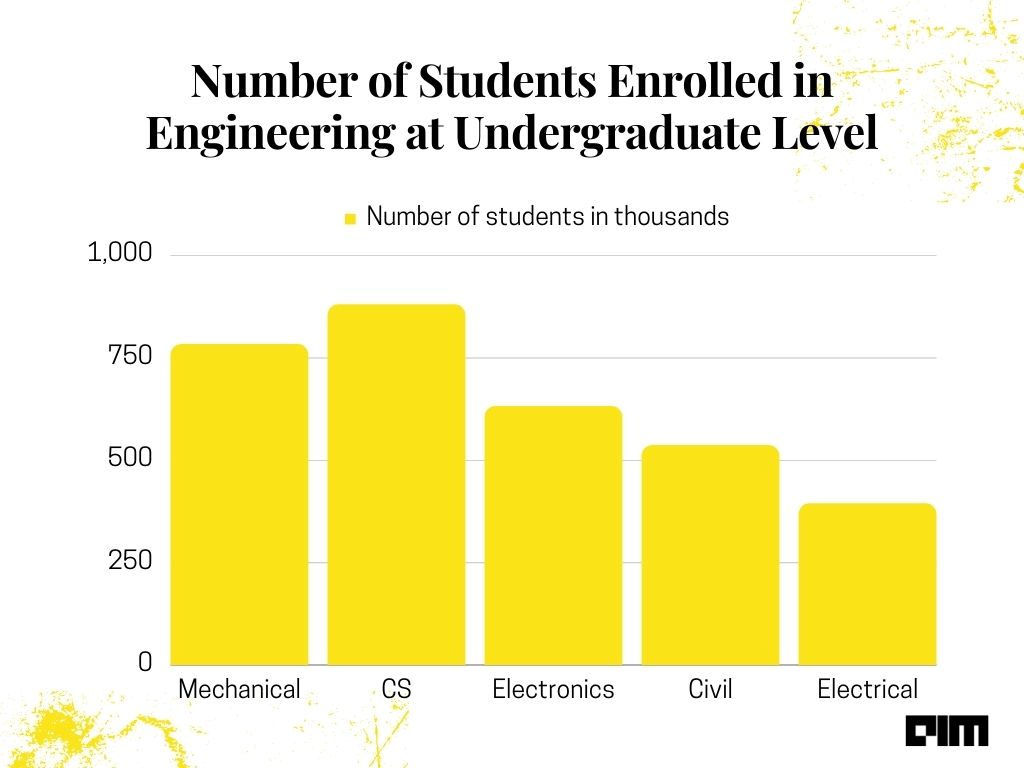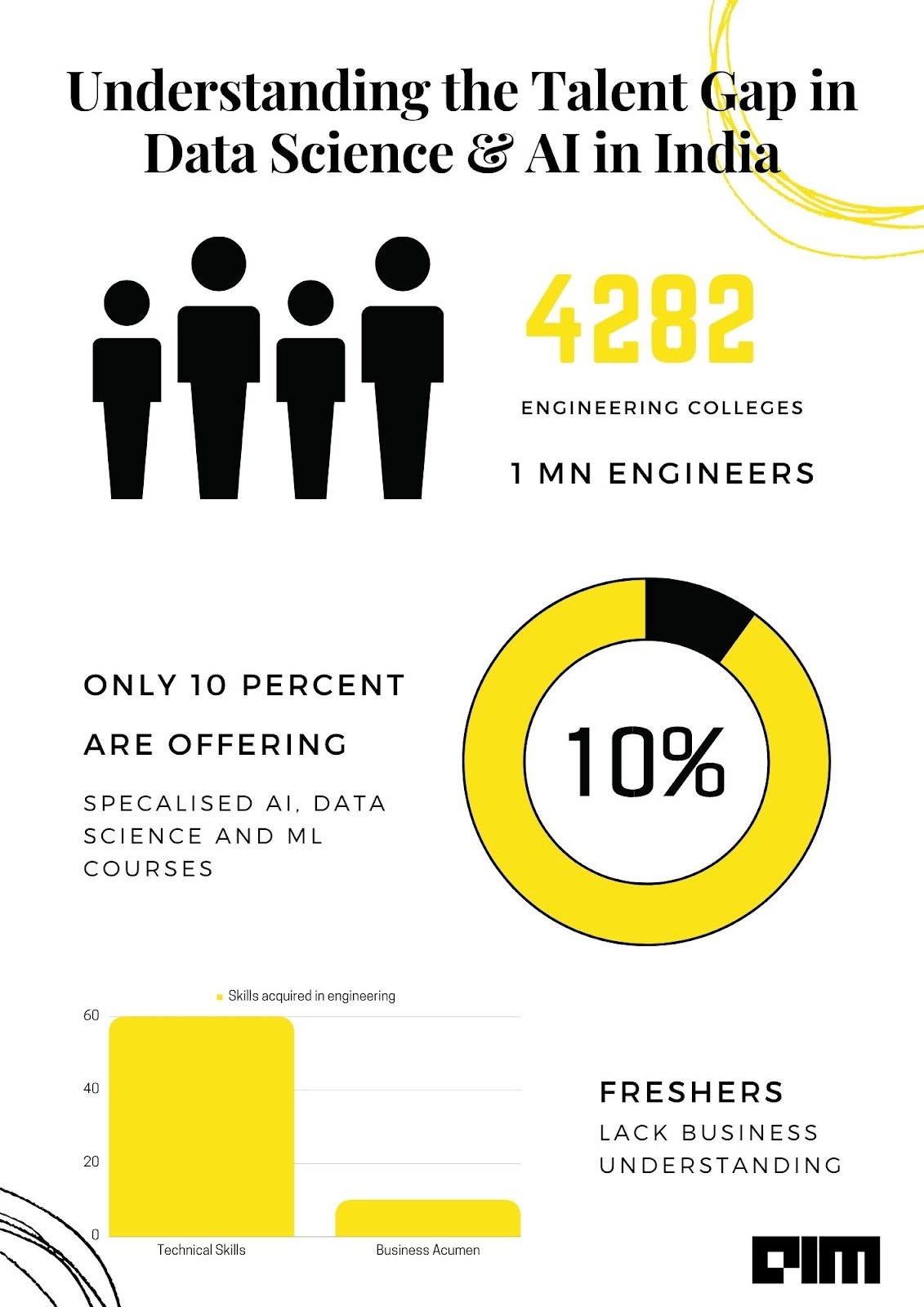According to IBM, finding and hiring staff with the right mix of skills and experience is a painstaking process. Around 69 percent of organisations struggle to recruit quality candidates, an Accenture study showed.
“Good data scientists are good at solving word problems,” said Nitesh Shende, data science lead at Porter. He said most data scientists struggle to situate machine learning models in a business context. “The ability to identify where and which data science techniques to use will only come through case studies,” said Shende.
We took a look at the computer science engineering and AI and data science courses curriculum in India, and found most universities and institutions are limited to core technical skills and lack business components.
For example, IIT Delhi’s department of computer science and engineering courses teach technical subjects and soft skills, but no specific modules focused on job-ready skills, or business case studies. On the other hand, NYU’s computer science courses have a ‘launch pad’ and ‘entrepreneurship capstone’ projects dealing with business development, and hands-on learning
What’s the solution?
To bridge the gap, tech giants Google, IBM, Microsoft, and AWS, and foriegn universities are offering online certification courses, training, distant management programmes, etc. For instance, Google is offering Grow with Google for professional training and an opportunity to network with top employers.
https://www.youtube.com/watch?v=eR-o4CvoPVo
Similarly, the IBM data science professional certificate course (on Coursera) includes a series of hands-on labs in the IBM Cloud, teaching practical skills.
Supply side
India has about 4,282 engineering institutes, and every year close to one million engineering graduates enter the job market. Of which, computer science has the highest numbers, followed by mechanical, electronics, civil, and electrical.

Nearly 127 diploma institutes and 663 undergraduate colleges offer specialised courses in AI, data science, analytics, blockchain, machine learning, and robotics– accounting for 10 percent of the total number of engineering institutes in India, All India Council for Technical Education (AICTE) data showed.
Today, not just engineers, statisticians, economists, and mathematicians are getting into the world of data science and analytics. Data science is touted as the most in-demand role in 2022. As per Monster Annual Trends report, 96 percent of companies are planning, or likely to hire new staff with relevant skills to fill data science and analytics related roles in 2022.

Today, most interviews have a question around how to apply technological knowledge in a business context. It’s crucial for colleges and universities to prepare students to solve real world problems. Hence, introducing ‘business case studies’ in the undergraduate curriculum can make a huge difference.
Demand side
According to data science talent expert Vin Vashishta, businesses don’t have a problem finding qualified data scientists but in recognising the qualified data scientists who apply.
“I could apply for a Data Science role and if I don’t goof my resume with all the right buzzwords, I would never see a hiring manager,” he said, adding the entire process is broken. “Great talent gets screened out all the time,” he added.
He suggested that recruiters should hire entry level scientists and upskill them. For senior level talent, they should manually read resumes and build a process to quickly hire them. “Phone screen. One hour interview. Train leaders to hire and help them build a process,” said Vashishta.
He said: “Companies hiring for tech talent need to realise, it is not 2012 anymore. Gauging talent is complex and those empty chairs are going to put your company out of business. Adapt or die.”
Jordan Luxford, AI recruiter, NLP specialist, and host of ‘The NLP Zone’ podcast, said: “Many companies require a Master’s degree or above for their tech vacancies regardless of the candidate’s experience, and other companies do not care about education at all.”
“I completely understand the advantages of having a Master’s or PhD in tech positions, but I have also worked with some of the best candidates who did not go down the traditional education route,” said Luxford.
He said it is important to have a standard, but companies need to be flexible. The companies will miss out on gifted, natural talents that started working from a young age and therefore chose not to pursue a degree, he added.
